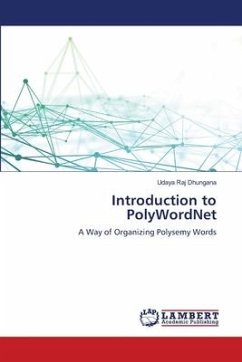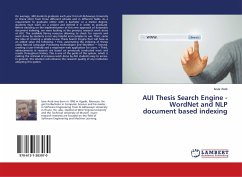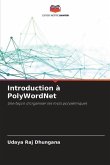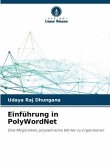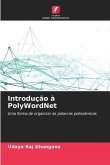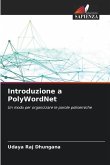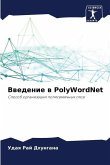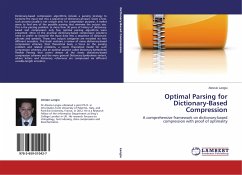PolyWordNet is a new lexical database that organizes the polysemy words. The PolyWordNet mimics the way how the senses of polysemy words and their corresponding related words are organized in a human mind. A related word of a sense of a polysemy word in a given context is a word that can disambiguate the meaning of the polysemy word in that context. Any simple sentence, which contains a polysemy word, also contains at least a related word which disambiguates its meaning. The relation between the sense of a polysemy word and its related word(s) in a sentence can be used to disambiguate the sense of the polysemy word. Utilizing this relation, PolyWordNet organizes the senses of polysemy words based on their corresponding related words. The organization of words in PolyWordNet is completely different as compared to the existing other popular lexical resources such as dictionary and WordNet and can serve as a very useful tool for word sense disambiguation. This book briefly explains the motivation towards the development of the PolyWordNet and describes the PolyWordNet in detail so that the researchers can use it as a useful tool whenever they need to disambiguate polysemy words.
Bitte wählen Sie Ihr Anliegen aus.
Rechnungen
Retourenschein anfordern
Bestellstatus
Storno

